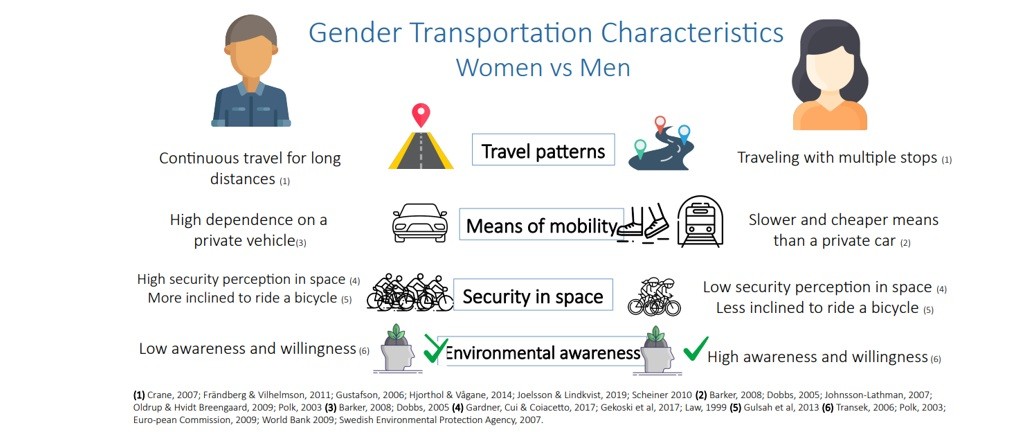
Prioritizing gender-related behavior in the analysis of transportation patterns may change planning priorities and accelerate a transition to more sustainable mobility solutions. That is the finding of a report compiled by the Ministry of Environmental Protection in Tel Aviv, Israel and shared at the Women in Mobility summit as part of Ecomotion Week.
Speaking at the Tel Aviv summit, Tamar Keinan, of the Department of Economics of Bar Ilan University, described important differences between male and female transportation behaviors as identified from studies conducted in Israel and globally. Focusing on issues ranging from vehicle ownership, to driving styles, and the use of micromobility and public transit, Keinan shared surprising insights suggesting that women may serve as an important fulcrum for evolving transportation toward a more sustainable future.
Among the findings shared by Keinan were:
- Men are more dependent on the use of privately owned vehicles and tend to travel continuously for long distances
- Women tend to make multiple stops when driving a privately owned vehicle and prioritize slower and less expensive means of travel over cars
- Men are more secure when traveling
- Men are more likely to ride a bicycle
- Men have a low awareness of environmental concerns and are less inclined to prioritize sustainability
- Men are more inclined to work further from home
- Women report a higher degree of satisfaction with public transportation
- Private car ownership by men is 1.5x greater than women for most age groups
- Men account for three quarters of employer-provided vehicles
The findings point to differences in transportation behaviors that are important enough to influence decision making. In fact, the studies suggest that ongoing analysis of this nature ought to be prioritized to foster a deeper understanding of transportation client behaviors in order to create policies intended to influence user decision making to achieve preferred outcomes.
The report concludes:
- Improving public transportation is a tool for achieving greater gender equality
- There is a lack of continuous information gathering to allow the measurement of gaps in transportation service delivery
- Female transportation patterns are not necessarily tied to the upbringing of children
- There is a need to redefine the peak and low hours of public transportation demand
- Women may play an essential role as change agents for achieving greater sustainability
The report suggests action items for transportation authorities:
- An expansion and improvement of public transportation including gender-specific marketing
- Road signs depicting both male and female figures
- The encouragement of “collaborative” travel
- More frequent travel behavior studies
The report also had recommendations for parents of daughters:
- Do not drive your daughters to school. Help them plan the safe way. Do not get them used to being passengers, next to the driver.
- Encourage them to ride a bike at a young age.
- Set a personal example, maintain gender balances in family transportation
- Experience public transportation, walking, and cycling
And recommendations for statisticians:
- Recognize the importance of differences in estimating satisfaction with public transportation among frequent users
- Recognize that sharing information helps reduce gender gaps in transportation
- Collect and analyze gender data regarding toll roads and vehicles from the workplace
And for municipal authorities:
- Create short walking distances
- Foster the use of multiple transportation modes
- Provide safe and continuous bike paths to help increase the percentage of female riders
- Strengthen the sense of security in the public space to foster the independent mobility of women
The transportation priorities and concerns of women are better aligned with societal sustainability goals – relative to the behaviors and preferences of men. By better addressing the transportation needs of women, municipalities and public authorities generally can accelerate their simultaneous progress toward transportation equity and ecologic and economic responsibility.
While the individual study findings seem deceptively obvious in some cases, the powerful implications are worthy of note. Women can serve as global change agents for achieving unmet global mobility goals.
Also read:
Connecting Everything, Everywhere, All at Once
Radiodays Europe: Emotional Keynote
Why Traceability Now? Blame Custom SoC Demand
Share this post via:







The Name Changes but the Vision Remains the Same – ESD Alliance Through the Years